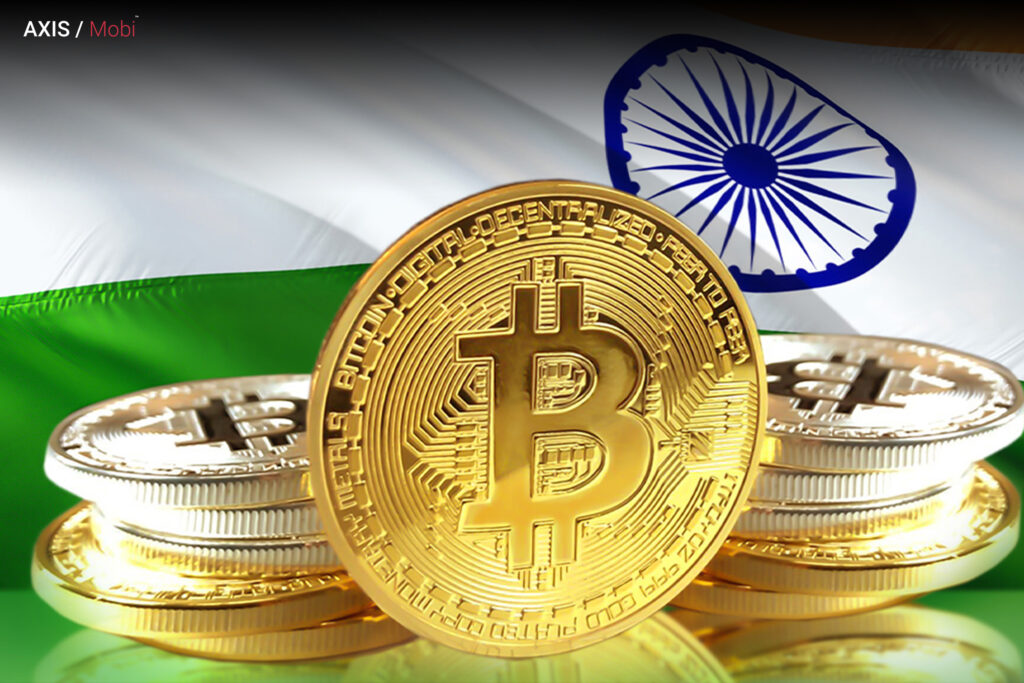In the Union Budget 2022–2023, Finance Minister Nirmala Sitharaman made two pronouncements that will significantly impact the Indian cryptocurrency asset market. The Digital Rupee will be adopted in the fiscal year 2022–2023, and the Indian government will impose a 30 per cent tax on the earnings generated by crypto assets. The Indian government has now decided to accept cryptocurrencies after first being hesitant to do so. Although there is still some uncertainty over the future of cryptocurrencies, these announcements have sent a strong message to enthusiasts that cryptocurrencies are getting closer to becoming legal in the country.
Although cryptocurrencies have been in use since 2009, they have recently experienced unheard-of growth. Younger investors with more excellent risk appetites are enormous fans of crypto assets. The Economic Times reported that almost 20 million Indians are involved in bitcoin trading.
According to the 2021 Global Crypto Adoption Index, the adoption of cryptocurrencies increased globally by 880 per cent. India placed second in the ranking after Vietnam. The Indian cryptocurrency market increased by 641% in a single year. The global market for cryptocurrencies is expanding quickly. It appears to be a potential sector for India as well.
ORIGIN:

In 2008, a person using the pseudonym Satoshi Nakamoto introduced the world to the idea of cryptocurrencies. On the internet, Nakamoto disseminated a white paper titled “Bitcoin: A Peer-to-Peer Electronic Cash System.” The following year, Bitcoin, the first cryptocurrency, was created. This currency was designed to remove the third party from electronic transactions and give the sender and recipient exclusive control over their funds.
There are currently almost 9000 distinct cryptocurrencies in use worldwide, including Ethereum, Tether, Dogecoin, and others. Bitcoin continues to be the most well-known out of all of these.
TECHNOLOGY INVOLVED:

Cryptocurrency is a type of digital money that uses Blockchain technology to encrypt its codes. As a result, the currency is protected against fraud. Except for El Salvador, cryptocurrencies are now recognized as legal financial assets, meaning they have value but cannot be used to exchange for or buy goods. According to Finance Minister Nirmala Sitharaman, bitcoin lacks the intrinsic value that qualifies a currency as a means of trade because a centralized body does not produce it. Therefore, cryptocurrency is an asset and not a form of money.
FEASIBILITY OF FINANCIAL TRANSACTIONS:

Other than the payee and the recipient of the funds, traditional financial transactions require intermediaries. Examples include the financial institutions that control the parties’ respective bank accounts and the platform used to conduct the transaction. Since all these participants collect fees for their services, customers must pay more during transactions. Hackers have more opportunities to steal sensitive information from people when more intermediaries are involved in the transaction process.
Cryptocurrency financial transactions take place through a peer-to-peer network on the internet without the involvement of a third party. Eliminating intermediaries reduces costs and increases safety in the process.
Thanks to the central bank’s pledge, any nation’s currency is still legal. People believe the central bank would act as a surety when conducting transactions. In the case of cryptocurrency transactions, cryptographic proof produced by cutting-edge technology bypasses the need for any centralized authority and renders trust unnecessary, making the process entirely decentralized.
Because cryptocurrencies are decentralized, they are accepted by people all over the internet. Due to the use of blockchain to record and distribute every transaction, the process is entirely democratic and transparent.
Public and private keys are used in cryptographic transactions. Each transaction updates the public key, which is also saved in the blockchain along with other information, including the payee and recipient’s information and the transaction’s value. Each user has a unique private key. All of this data is encrypted for security.
SKEPTICISM SURROUNDING CRYPTOCURRENCY:

For various reasons, Indian banks continue to harbour doubts about the cryptocurrency sector. One among them was crypto assets’ role in supporting terrorism and money laundering. One would assume that the crypto sector would be susceptible to hacks and scams due to its virtual character. Technological improvement has made better security protections possible, yet the virtual world is still vulnerable to abuse.
In 2013, the Reserve Bank of India warned traders about cryptocurrency risks. The central bank forbade crypto assets in April 2018 and instructed banks to halt all virtual currency transactions. The Supreme Court heard an appeal from the Internet and Mobile Association of India (IAMAI) against the ruling. Because it interfered with Article 19 (1)(g) of the Indian Constitution, the restriction on cryptocurrencies was ruled unconstitutional.
CONCLUSION:
Given the speed at which the crypto financial system is growing, the Indian government’s acceptance of the digital currency system is a wise move. It would be difficult for the government to create a system that allows cryptocurrencies to operate without losing their original purpose.




